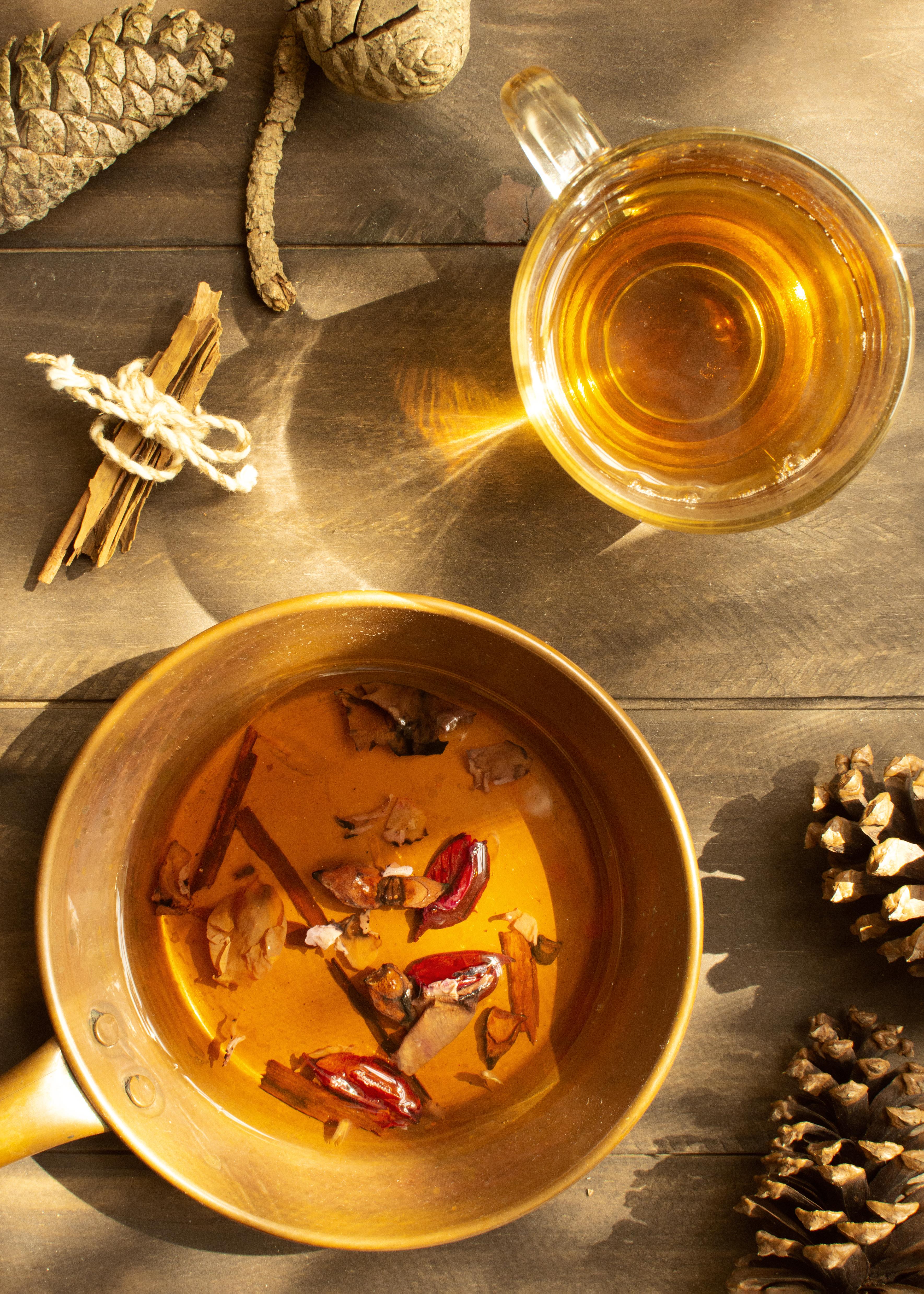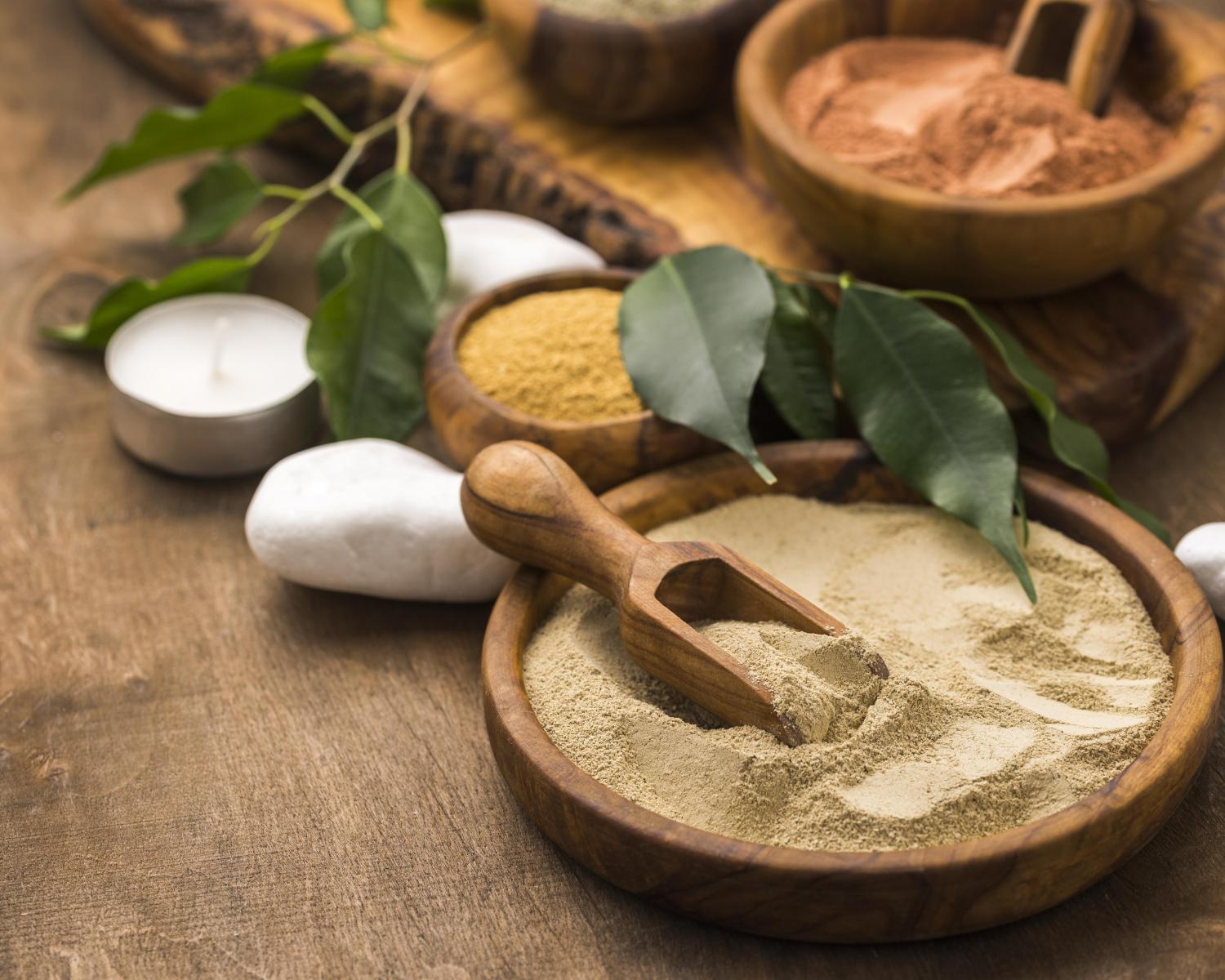FOODS FOR MENOPAUSE
This guide explores Ayurveda’s holistic approach to menopause, viewing it as a natural transition rather than a disease. It highlights ancient wisdom, herbal remedies like Shatavari and Ashwagandha, dietary recommendations, lifestyle practices, and Vedic

MENOPAUSE IS a natural biological process that marks the end of a woman’s reproductive years, typically occurring between the ages of 45 and 55. From a medical standpoint, menopause is officially diagnosed after 12 consecutive months without menstruation. It is primarily caused by a decline in estrogen and progesterone levels, leading to various physical and emotional changes. common symptoms include hot flashes, night sweats, mood swings, vaginal dryness, and an increased risk of osteoporosis and heart disease. While menopause is not a disease, its symptoms can significantly impact a woman’s quality of life. Modern medicine offers several management options, including hormone replacement therapy (hrt), lifestyle modifications, and alternative therapies to help ease the transition.
Ayurvedic Perspective on Menopause: Wisdom from the Founders
Ayurveda, one of the oldest systems of holistic healing, views menopause as a natural transition rather than a disease. the classical texts describe it as "rajonivritti" , meaning the cessation of menstruation. According to ayurveda, menopause is linked to the aging process, which is dominated by vata dosha, leading to dryness, instability, and depletion of vital energies.
Ayurvedic Approach to Menopause
• warm, nourishing foods, oil massages, and herbal therapies
• supporting ojas (vitality): rasayana (rejuvenating) herbs like shatavari and ashwagandha
• harmonizing the mind: meditation, yoga, and pranayama
Herbal Formulations for Menopause
Shatavari (asparagus racemosus)
Known as a powerful adaptogen, shatavari is often called the "queen of herbs" for women’s health. It is a key herb for rejuvenating the shukra dhatu (reproductive tissues) and balancing vata. It promotes hormonal balance, nourishes the nervous system, and reduces symptoms like hot flashes and mood swings.
Ashwagandha (withania somnifera)
This herb is used for its rejuvenating properties, reducing stress, and balancing vata. It helps in combating fatigue, anxiety, and sleeplessness, common during menopause.

Yashtimadhu (licorice) Known for its ability to support the endocrine system and soothe irritated tissues, yashtimadhu helps balance hormonal fluctuations.
Diet and Lifestyle Adjustments
The rishis prescribed specific diets to balance the vata dosha, which dominates during menopause. These diets included:
• Warm, cooked foods: Soups, stews, and easily digestible foods to support vata.
• Ghee (Clarified Butter): Known for its nourishing and lubricating qualities, ghee helps prevent dryness in the body, a common symptom of menopause.
• Sesame seeds and nuts: Rich in healthy fats, these help strengthen ojas (vital energy) and support the body’s natural functions.
• Avoiding cold and dry foods: Cold foods can aggravate vata, leading to more dryness and discomfort.
Oil Massage (Abhyanga)
Ancient rishi recommended abhyanga, a form of therapeutic self-massage with warm oils, to balance vata. Abhyanga helps to:
• Lubricate joints and tissues, reducing the dryness that comes with menopause.
• Calm the nervous system, helping with mood swings and stress.
• Enhance circulation and lymphatic drainage, which helps detoxify the body and support overall vitality.
Yoga and Pranayama
Physical practices such as yoga and pranayama (breathing exercises) were also prescribed by the rishis to maintain balance during menopause. These practices:
• Calm the mind, reduce anxiety, and support emotional well-being.
• Enhance flexibility, especially in the joints, which tend to become stiffer during menopause.
• Improve circulation and regulate hormones.
Rasayana (Rejuvenation)
The rishis also emphasized rasayana therapies, which involve the use of rejuvenating herbs and practices to restore vitality and longevity. Rasayana strengthens the body’s tissues, especially the shukra dhatu, and prevents premature aging. Some common rasayana herbs used during menopause include:
• Amla (Indian Gooseberry): Rich in vitamin c, amla is a powerful antioxidant that helps restore balance and vitality.
• Guduchi (Tinospora Cordifolia): Known for its detoxifying and immune-boosting properties, guduchi also strengthens the body’s resilience during this transition.
Ayurvedic Mantras for Menopause
The rishis often accompanied their physical treatments with spiritual practices, believing that the mind and spirit are deeply connected to physical health. meditation, chanting, and mindfulness were seen as important aspects of maintaining balance and promoting well-being.
Astrological influence on menopause: the role of planets
In vedic astrology, menopause is linked to planetary influences that govern aging, hormonal changes, and reproductive cycles. the key planets responsible for menopause are:
Shani (Saturn) – The Aging Factor
Saturn is the significator of aging and decline. As a woman approaches menopause, saturn's influence becomes stronger, indicating the body’s gradual slowdown and depletion of reproductive functions.
A strong or afflicted saturn in the 1st, 6th, 8th, or 12th house can cause early menopause, joint pain, dryness, and increased vata-related symptoms. If saturn aspects the moon, venus, or the 5th house, menopause may bring emotional challenges, anxiety, or a sense of detachment.
Chandra (Moon) – Menstrual Cycle and Emotional Balance
The moon governs the menstrual cycle, and its waning strength in a woman’s chart signals the gradual cessation of periods.
A weak or afflicted moon (especially in conjunction with saturn or rahu) may cause mood swings, hot flashes, and emotional instability during menopause. If the moon is in scorpio (debilitated) or aspected by malefic planets, menopause may be emotionally intense.
Shukra (venus) – Reproductive Health and Hormonal Balance
Venus rules femininity, beauty, and reproductive organs. A decline in venus's strength often coincides with menopause, leading to hormonal shifts, loss of skin elasticity, and reduced libido.
A weak or afflicted venus (especially in virgo, debilitated, or aspected by saturn or ketu) may cause vaginal dryness, osteoporosis, and lack of vitality. If venus is strong (in taurus, libra, or pisces), the transition to menopause may be smooth with minimal symptoms.
Rahu & Ketu – Karmic Influences on Menopause
Ketu, being a planet of detachment, can create a loss of reproductive power, leading to premature menopause or a lack of interest in physical intimacy.
Rahu can bring sudden or early menopause when placed in the 1st, 5th, or 8th house, often causing intense hot flashes, anxiety, and hormonal imbalances. Rahu-ketu dasha or transits over the moon, venus, or the 5th house may trigger significant menopausal symptoms.
The 5th & 8th Houses – Indicators of Reproductive Changes
The 5th house governs reproduction and hormonal health. If saturn, rahu, or ketu influence the 5th house, menopause can be difficult or come earlier than usual.
The 8th house is the house of longevity and transformation. A strong 8th house (with benefic planets like jupiter) can indicate a smooth menopausal transition, while malefic influences can bring severe health issues during menopause.
Guru (Jupiter) – The Protector of Health
Jupiter governs hormonal balance and nourishment. A strong jupiter supports a smooth menopause transition, while a weak jupiter may lead to weight gain, sluggish metabolism, or hormonal imbalances.
If jupiter is in the 6th, 8th, or 12th house, menopause symptoms may be more challenging due to metabolic issues, joint pain, or excessive dryness.
Foods to Prevent Early Menopause & Support Hormonal Balance
By incorporating the right foods at different life stages, women can nourish their reproductive health, balance doshas, and prevent early menopause.
20s to early 30s: Building Hormonal Resilience: This phase is crucial for nourishing the reproductive system and maintaining hormonal stability. Foods should focus on reproductive tissue nourishment. Some of the best foods are:
Healthy fats
Ghee, coconut oil, sesame oil, nuts, and seeds (flaxseeds, pumpkin seeds, sunflower seeds)
Iron-rich foods
Green leafy vegetables (spinach, moringa, fenugreek), jaggery, black sesame seeds, and pomegranate
Dairy products
Cow’s milk, homemade curd, and paneer.
Whole grains
Millets, brown rice, and barley for sustained energy and metabolic health.
Avoid – Processed foods, excessive caffeine, artificial sweeteners, and alcohol (they deplete ojas and accelerate aging).
Mid-30s to early 40s: Strengthening Ojas & Preventing Early Hormonal Decline
This phase is pre-menopausal, where slight hormonal fluctuations begin. The focus should be on maintaining reproductive health and preventing dryness.Best foods:
Sesame seeds & Almonds Rich in calcium, help maintain bone strength & hormonal stability.
Dates & Figs
Natural estrogen boosters, help prevent hormonal decline.
Soy & Flaxseeds
Contain phytoestrogens that mimic estrogen, supporting hormonal balance.
Turmeric & Ginger
Anti-inflammatory spices to reduce menstrual irregularities & bloating.Ghee & warm soups Help lubricate the body, preventing vata imbalance.Leafy greens
Spinach, moringa, kale– High in iron, magnesium, and calcium, prevent osteoporosis and fatigue.
Avoid – Excessive sugar, refined oils, and deep-fried foods that accelerate cellular aging.
40s to early 50s: Managing Perimenopause & Delaying Full Menopause
In this stage, vata dosha increases, and estrogen declines, leading to symptoms like hot flashes, mood swings, and joint pain. Foods should be warm, nourishing, and hormone-regulating.Best foods
Amla (Indian gooseberry) & Triphala
Rich in vitamin c, help maintain collagen and prevent premature aging.
Bone broth & Dairy
Milk, curd, paneer – Support bone health and prevent osteoporosis.
Warm, spiced herbal teas Cumin, fennel, coriander tea for digestive support and hormonal balance.
Avoid – Cold, dry foods, excessive caffeine, and highly processed snacks that aggravate vata dosha.
50s & beyond: Post-Menopausal Nourishment
Menopause is complete, and the body shifts into a vata-dominant stage. The focus should be on bone health, joint lubrication, and maintaining emotional well-being. Best foods
Ashwagandha & Brahmi Adaptogenic herbs that support brain health and emotional balance.
Turmeric & Black Pepper Anti-inflammatory, prevent arthritis and joint pain.
Calcium-rich foods Moringa leaves, sesame seeds, ragi (finger millet), and dairy products for bone strength.
Ghee & Almonds
Prevent dryness, fatigue, and cognitive decline.
Avoid –Raw salads, cold foods, excess tea/coffee, and dry snacks that increase vata imbalance.
Best Ayurvedic Drinks for Menopause Relief
Shatavari Almond Milk (hormone balancer)
Best for: hot flashes, dryness, and hormonal imbalance.
.jpg)
Ingredients:
• 1 cup warm milk (cow milk or almond milk)
• 1 tsp shatavari powder (Asparagus Racemosus)
• 1/2 tsp organic turmeric
• 1/2 tsp crushed almonds
• 1 tsp honey (optional)
How to make: Mix all ingredients in warm milk and drink before bedtime.
Why it works: hatavari is a natural phytoestrogen that balances hormones and prevents dryness.
Cumin-Fennel-Coriander Tea (cooling & digestive)
Best for: Hot flashes, bloating, and stress
Ingredients:
• 1 tsp cumin seeds
• 1 tsp fennel seeds
• 1 tsp coriander seeds


